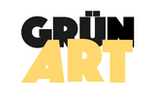Veterans Day: America's 9 Most Epic War Artworks
Share
In honor of those who have served (and serve) in the U.S Armed Forces, we've put together (in no particular order) America's 9 most epic war artworks of all time.
1. Emanuel Leutze, George Washington Crossing the Delaware (1851)
When one thinks of epic American war artworks, George Washington Crossing the Delaware
is the image that flashes across everyone's mind. With the first
president standing one leg propped, face in profile and sword in clear
view, this painting depicts a surprise attack planned by the famous
president on the Hessian forces in Trenton, New Jersey.

Emanuel Leutze, George Washington Crossing the Delaware (1851).
Wikipedia.
2. Frederic Edwin Church, Our Banner in the Sky (1861)
Edwin Church's painting was his political statement in defense of the
Union when the Confederate attacked Fort Sumter in April 1861. The vivid
orange sky represents the Union flag with a bare tree stick as the
flagpole.

Frederic Edwin Church, Our Banner in the Sky (1861).
Smithsonian.
3. Benjamin West, The Death of General Wolfe (1771)
Anglo-American painter, Benjamin West depicts the British General James
Wolfe during the 1959 Battle of Quebec of the Seven Year's War.

Benjamin West, The Death of General Wolfe(1771).
Wikipedia.
4. Roy Lichtenstein, Whaam! (1963)
The famous pop artist's work was inspired by a comic book called All American Men of War. Whaam!'s stylized imagery depicting air battle was painted during the Vietnam War.

Roy Lichtenstein, Whaam! (1963).
BBC.
5. Norman Rockwell, Freedom from Want (1943)
Rockwell's iconic series, "Four Freedoms", inspired by a speech made by
then President, Franklin D. Roosevelt, includes three other works
titled, Freedom of Speech, Freedom of Worship, and Freedom from Fear.
Roosevelt's speech in which he articulated the four fundamental
freedoms, was delivered 11 months before America declared war on Japan
on December 8, 1941.

Norman Rockwell, Freedom from Want(1943).
Photo: via Wikipedia.
6. Alfred Eisenstaedt, The Kiss (1945)
Eisenstaedt's iconic photo of a US Navy veteran kissing a nurse was
taken on August 14, 1945 in Times Square, New York, at the announcement
of the end of WWII.

Alfred Eisenstaedt, The Kiss (1945). Photo: courtesy BBC.
7. John Trumbull, Death of General Montgomery at the Attack on Quebec (1786)
Trumbull's painting depicts General Montgomery's gallant but disastrous
attempt to capture Quebec city during the Invasion of Canada in 1775,
the first major military initiative by the newly formed Continental Army
during the American Revolutionary War.

John Trumbull, Death of General Montgomery at the Attack on Quebec (1786).
Photo: via Wikipedia.
8. Barnaby Furnas, Untitled (Antietam) (2008)
Contemporary American painter and former graffiti artist, Barnaby
Furnas's work portrays the civil war, in a video-game-esque manner, with
the Union and the Confederates on either side meeting in a clash of
rifles and bullets. Creating his own style of ultra-violence, Furnas's
semi-abstract work uses a traditional medium in a completely modern way.
[img itemprop="contentUrl representativeOfPage" src="http://res.artnet.com/news-upload/2014/11/barnaby-furnas-untitled-antietamII-2008.jpg" alt="Barnaby Furnas, Untitled (Antietam) (2008).
Barnaby Furnas, Untitled (Antietam) (2008).
Marianne Boesky.
9. Joe Rosenthal, Raising the Flag on Iwo Jima (1945)
American photographer Joe Rosenthal captured five American soldiers
raising a U.S flag atop Mount Suribachi when they successfully captured
the Japanese island, Iwo Jima. This photograph won the Pulitzer Prize
for Photography the same year it was published.
 Joe Rosenthal, Raising the Flag on Iwo Jima (1945).
Joe Rosenthal, Raising the Flag on Iwo Jima (1945).
